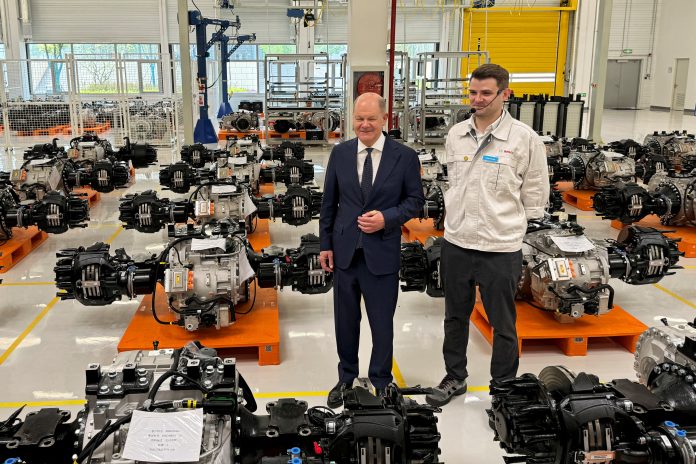German Chancellor Olaf Scholz arrived in China for a three-day visit on Sunday amid trade tensions and disagreements over the conflict in Ukraine, Chinese state media reported.
Scholz’s first destination was the city of Chongqing in southwest China, where he visited a plant of German technology supplier Bosch to produce hydrogen fuel cells. The highest-ranking official who met German Chancellor Olaf Scholz at the airport was the deputy mayor of Chongqing.
He will also visit the financial centre of Shanghai on Monday before heading to the capital Beijing on Tuesday to meet Chinese President Xi Jinping and Premier Li Keqiang.
This is Scholz’s second visit to China since taking office at the end of 2021. The previous visit took place in November 2022.
In the summer of 2023, the European Commission presented the first EU economic security strategy aimed at eliminating risks in economic interaction with countries that do not share European values, including China. This is a package of measures implying the restriction of exports of critical technologies. Beijing found in this EU policy a manifestation of protectionism and bloc thinking.
December 2023 saw the first face-to-face EU-China summit in four years. European Commission head Ursula von der Leyen said that Brussels was not interested in “disengagement” with the Chinese economy along the lines of the US, but needed to eliminate overdependence by diversifying supply chains.
In January 2024, the European Commission presented an updated version of the document, in which it called on the countries of the association to introduce mechanisms for risk assessment when approving foreign direct investment.
Before the visit, German officials expressed hope that Beijing could play a positive role in cooling rising tensions in the Middle East. Last year, China played mediator between Iran and Saudi Arabia, asking Iran to help curb attacks on ships in the Red Sea by the Iranian-backed Houthis or risk damaging business relations with Beijing.
